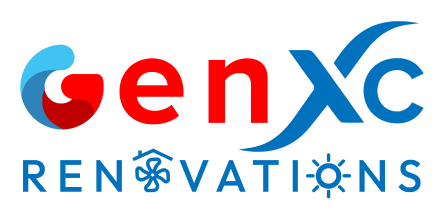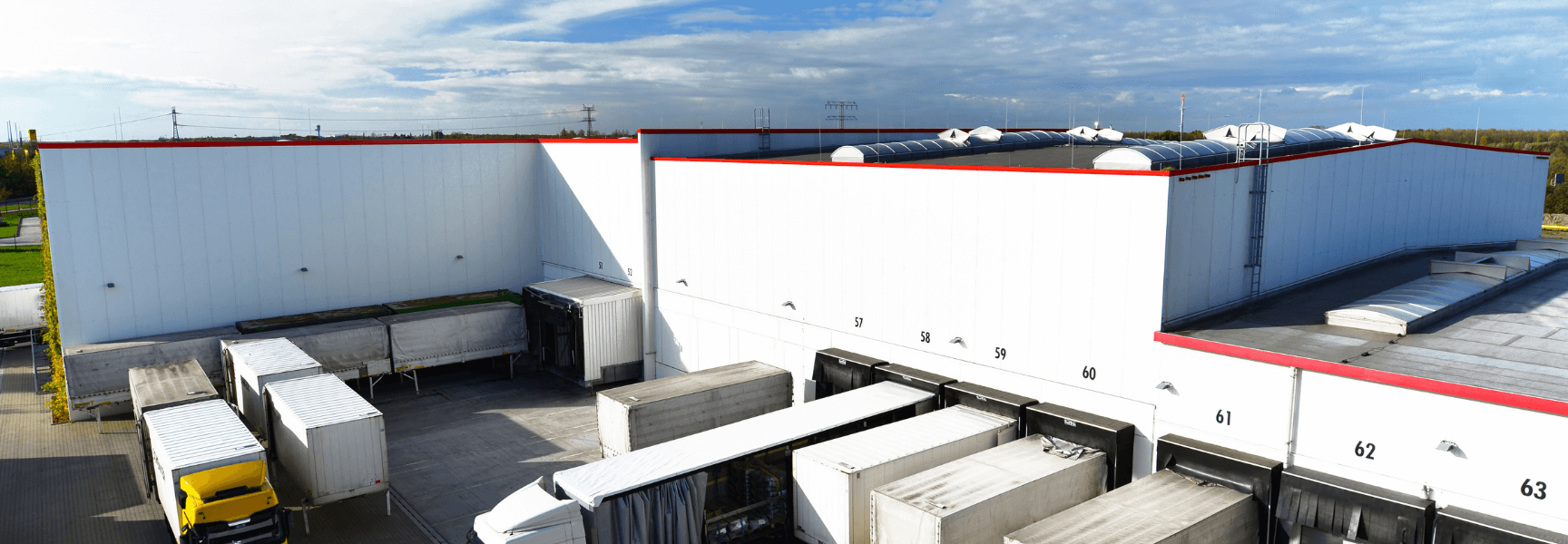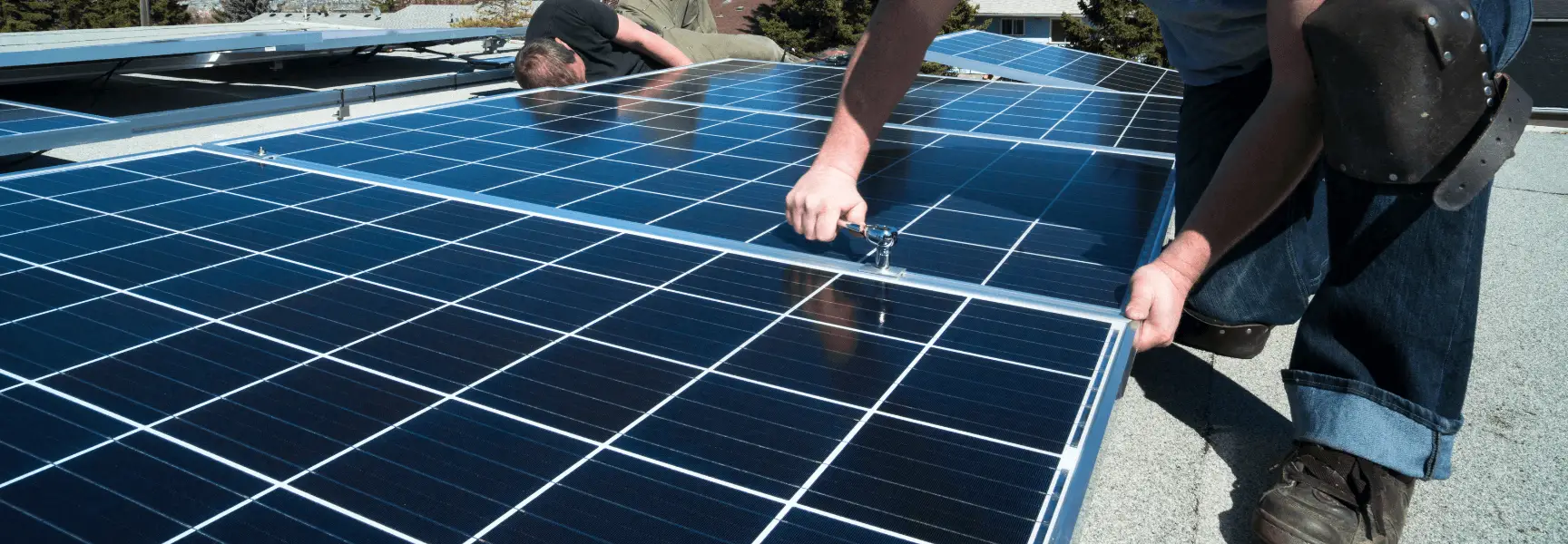Hey Florida business owners!
Are you looking for ways to save on energy bills, make your building more resilient, and reduce your environmental impact? The key to achieving all these goals lies in complete property efficiency. By optimizing your building’s systems—including solar, roofing, insulation, and HVAC—you can unlock major benefits for your business.
In this article, we’ll walk through why a holistic approach to property efficiency matters and how these systems work together to create lasting savings and sustainability. Let’s dive in!
Understanding Complete Property Efficiency
What is Complete Property Efficiency? In a nutshell, complete property efficiency means optimizing all the essential systems in your building to work together for maximum performance and savings. Instead of focusing on one area, like solar or HVAC alone, you’re looking at the whole picture to ensure every part supports your energy goals.
Why It Matters: When these systems work in harmony, you can achieve greater energy savings, improved comfort, and increased protection against Florida’s unique weather challenges. According to the U.S. Department of Energy (DOE), a fully optimized property can reduce energy consumption by up to 40%, translating into significant cost savings.
Real-World Example: A Florida manufacturing plant conducted an energy audit and discovered that 60% of their energy use occurred during peak hours. By adjusting their operations and sizing their solar system correctly, they saved 25% more on energy bills than initially projected.
Solution: An energy audit analyzes your current energy usage, identifies peak demand times, and helps determine the correct size of your solar system. Don’t skip this critical step—it ensures you’re getting the most efficient and cost-effective system for your business.
The Role of Solar Energy
Why Solar is a Key Component: Solar panels generate clean, renewable electricity, reducing your reliance on the grid and cutting down your utility bills. With Florida’s sunshine, solar is especially effective here; the state averages over 230 sunny days a year, making it one of the best locations for solar in the country.
Real-Time Data on Solar Savings: Businesses in Florida that invest in solar can cut their electricity costs by up to 75%, depending on their energy needs and system size. According to the Solar Energy Industries Association (SEIA), the average commercial solar system pays for itself in 5-7 years, after which the energy generated is essentially free.
Integration with Other Systems: Solar works best when paired with other efficient systems. For example:
- Roofing and Solar: Installing solar panels can actually extend the life of your roof by protecting it from direct sunlight and weather exposure, while a strong, durable roof ensures that your solar panels are secure.
- Impact on HVAC: Solar panels generate power that can offset your HVAC system’s energy needs, particularly during peak hours. This reduces the load on your HVAC system, helping to keep indoor temperatures stable and extending the lifespan of your equipment.
The Importance of Roofing
Why Roofing Quality Matters for Efficiency: Your roof is your building’s first line of defense against heat, humidity, and extreme weather. In Florida, a high-quality roof can make a huge difference in both energy efficiency and property protection. Roofing materials that are designed for Florida’s climate help reflect sunlight and reduce indoor temperatures, which, in turn, eases the workload on your HVAC system.
Florida-Specific Considerations: Florida’s roofs face unique challenges. With the frequency of hurricanes and high humidity, durable materials are essential. The Insurance Institute for Business & Home Safety (IBHS) reports that hurricane-resistant roofs can withstand wind speeds of over 140 mph, protecting both your property and any solar installations on the roof.
Energy-Efficient Roofing Materials: For Florida businesses, cool roofs, metal roofs, and reflective coatings are ideal. These materials reduce heat absorption by up to 50%, lowering indoor temperatures and saving energy on air conditioning. This can be a huge boost to energy savings during Florida’s long, hot summers.
Real-World Example: After Hurricane Irma in 2017, several businesses in the Miami area suffered damage to their solar panels because they hadn’t been installed with hurricane-rated mounts. This led to months of downtime and costly replacements.
Solution: Choose solar panels and mounting systems that are specifically rated for hurricane conditions and high temperatures. In Florida, your provider should install panels that can withstand winds of at least 160 mph. This investment in durability will pay off when severe weather strikes.
The Role of Insulation
Why Insulation is Crucial for Energy Efficiency: Insulation plays a major role in preventing the escape of conditioned air and blocking outdoor heat. Proper insulation means your HVAC system doesn’t have to work as hard to maintain a comfortable indoor temperature. According to the DOE, businesses with proper insulation can reduce their heating and cooling costs by up to 30%.
Real-World Impact: Let’s say your business is in Tampa, where summer temperatures regularly exceed 90°F. Without adequate insulation, your HVAC system will be running constantly, which leads to higher energy bills. Investing in the right insulation can make a big difference in managing these costs.
Choosing the Right Insulation for Florida: Florida’s climate requires specific insulation solutions. Spray foam insulation, for instance, is particularly effective in hot and humid climates. It prevents moisture infiltration and provides a higher level of thermal resistance, keeping buildings cooler and reducing humidity levels.
Real-World Example: A restaurant in Tampa didn’t apply for Florida’s sales tax exemption on solar systems, missing out on an immediate 6% savings. Had they known, they could have saved $12,000 on their $200,000 installation.
Solution: Stay informed about the incentives and rebates available at the federal, state, and local levels. In Florida, businesses can benefit from the ITC, sales tax exemptions, and property tax exemptions. Work with a knowledgeable solar provider who can guide you through the application process to ensure you maximize your savings.
The Importance of a High-Performing HVAC System
Why HVAC Efficiency is Critical: Your HVAC system accounts for nearly 50% of energy use in commercial buildings, according to the Environmental Protection Agency (EPA). An efficient HVAC system not only keeps indoor temperatures comfortable but also prevents energy waste and improves air quality.
Energy Consumption and Cost Savings: For Florida businesses, where air conditioning is a year-round necessity, upgrading to an energy-efficient HVAC system can save thousands annually. High-performance HVAC systems can reduce energy costs by 20-30% compared to older models.
Maintaining HVAC Efficiency: Routine maintenance is essential to keep your HVAC system running efficiently. Regular inspections, filter changes, and investing in smart thermostats to control heating and cooling cycles can further enhance efficiency and savings.
Real-World Example: A commercial property in Orlando didn’t monitor or clean its panels for over a year. Dirt, leaves, and bird droppings accumulated, reducing the system’s efficiency by 18%. This neglect cost the business thousands in lost energy production.
Solution: Set up a maintenance schedule to keep your system performing at its best. Regular cleaning, inspections, and real-time monitoring of energy production can help catch any issues early, ensuring you’re always getting the most out of your solar investment.
The Power of an Integrated Efficiency Plan
How to Implement a Complete Efficiency Strategy:
Comprehensive Energy Assessment: Start by conducting an energy assessment of your property. This identifies key areas where you can improve efficiency, whether through upgraded insulation, a new HVAC system, or solar installation. Energy assessments can often pinpoint energy savings of up to 20%, according to the DOE.
Work with Experienced Professionals: Collaborate with professionals who understand how these systems can complement one another. At GenXC, we offer solutions that integrate solar, roofing, insulation, and HVAC, creating a tailored plan that meets your energy goals and budget.
Long-Term Benefits of Integration:
- Financial Savings: By implementing a complete efficiency strategy, Florida businesses can see a return on investment within 3-5 years, with ongoing savings of up to 40% on utility bills.
- Enhanced Property Value and Protection: A property optimized for energy efficiency not only saves money but also increases in value and resilience against weather events, making it a smarter investment in the long run.
In conclusion...
To recap, complete property efficiency means optimizing solar, roofing, insulation, and HVAC systems to work together. This approach not only cuts energy costs but also improves your property’s resilience and helps you achieve your sustainability goals.
Ready to start your journey toward complete property efficiency? Contact GenXC today for a personalized consultation and let’s build a plan that works for your business.



